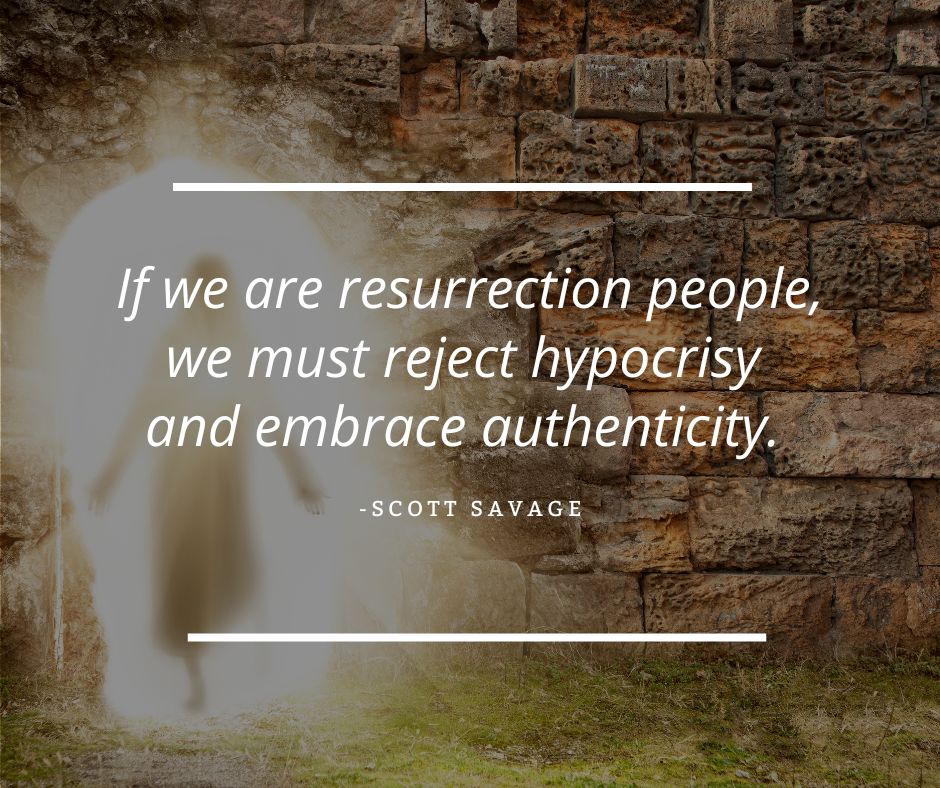After Easter: How to Live as Resurrection People Every Day預覽


God hates hypocrisy. From the words of the prophets in the Old Testament to the words of Jesus in the Gospels, the Bible records strong rebukes of those who lack authenticity, especially in the context of faith.
In my opinion, Acts 5 is the scariest passage in the book of Acts. The end of Acts 2 and Acts 4 describes a voluntary type of shared spending among the early church. People sold their possessions and property, bringing the proceeds to the Apostles to meet the needs of others.
In Acts 5, however, a couple named Ananias and Sapphira did a similar thing. They sold a parcel of land and brought money from the sale to the Apostles. While they said they brought the entire proceeds, they saved some for themselves.
At a time of powerful authenticity, they chose hypocrisy. After Barnabas was applauded for selling land and giving the proceeds to the apostles in Acts 4, Luke immediately records Ananias and Sapphira’s attempt to trick the Apostles. Similar to our approach to community, they wanted the outcome of sacrificial generosity without the process.
The scary part comes next. This couple comes in separately before the Apostles, but both experience the same thing. They lie to the Apostles. The Apostles confront them. They are struck dead by God in front of the Apostles. God rejected their hypocrisy because He knew the danger it posed to this fragile group of resurrection people.
Hypocrisy destroys our communities. The spiritual momentum recorded in Acts 1-4 could have been destroyed by Acts 5 by what Ananias and Sapphira did by lying. Most commentators believe this shocking event occurred to eradicate this behaviour and protect the early church.
So, what’s the lesson for us? If we are resurrection people, we must reject hypocrisy and embrace authenticity. What you do doesn’t just impact you.
This couple chose to use their freedom to destroy what God was doing.
They didn’t realize the impact their actions had on themselves and others.
The word “conviction” has gotten a bad rap in recent years. For some, this word and the Acts 5 story might feel uncomfortable.
But, I chose to close this plan with this passage because I wanted to remind you to be who God says you are. In 2 Corinthians 5, Paul wrote that we are new creations - the old has gone; the new has come. In Acts 1, Jesus said we are His martyrs - His witnesses.
When you choose to live as a resurrection person, you have a target on your back. You’re moving forward in obedience - you’re going to face resistance. Our enemy, Satan, does not want you to live as a new person. He wants to tempt you back into your old way of life when you did not expect resurrection.
Acts 5 tells us that a “great fear” fell over the early Church after Ananias and Saphira died. The people lived with humility, reverence, and awe for God. As they lived authentically with dependence on the Holy Spirit, God moved in power. People continued to put their trust in Jesus. Resurrection kept happening all around them.
If we’re going to live as resurrection people all year long…
If we’re going to be “Easter people in a Good Friday world”...
If we’re going to see Easter Sunday become bigger than one Sunday per year…
That journey starts today as we look to Jesus and expect Him to bring resurrection all around us. I’m on that journey. I’m excited you are now too!
If you enjoyed this plan and would like more practical resources to help you live as a resurrection person all year, click here for complimentary access to my Resurrection People Action Plan.
關於此計劃

Do you ever struggle with the gap between hearing the words "this changes everything" and the life you are living the Monday after Easter? What is supposed to happen when the Easter service is over? In this plan, you will learn how the first followers of Jesus became resurrection people and how you can live differently because of what happened on Easter.
More









